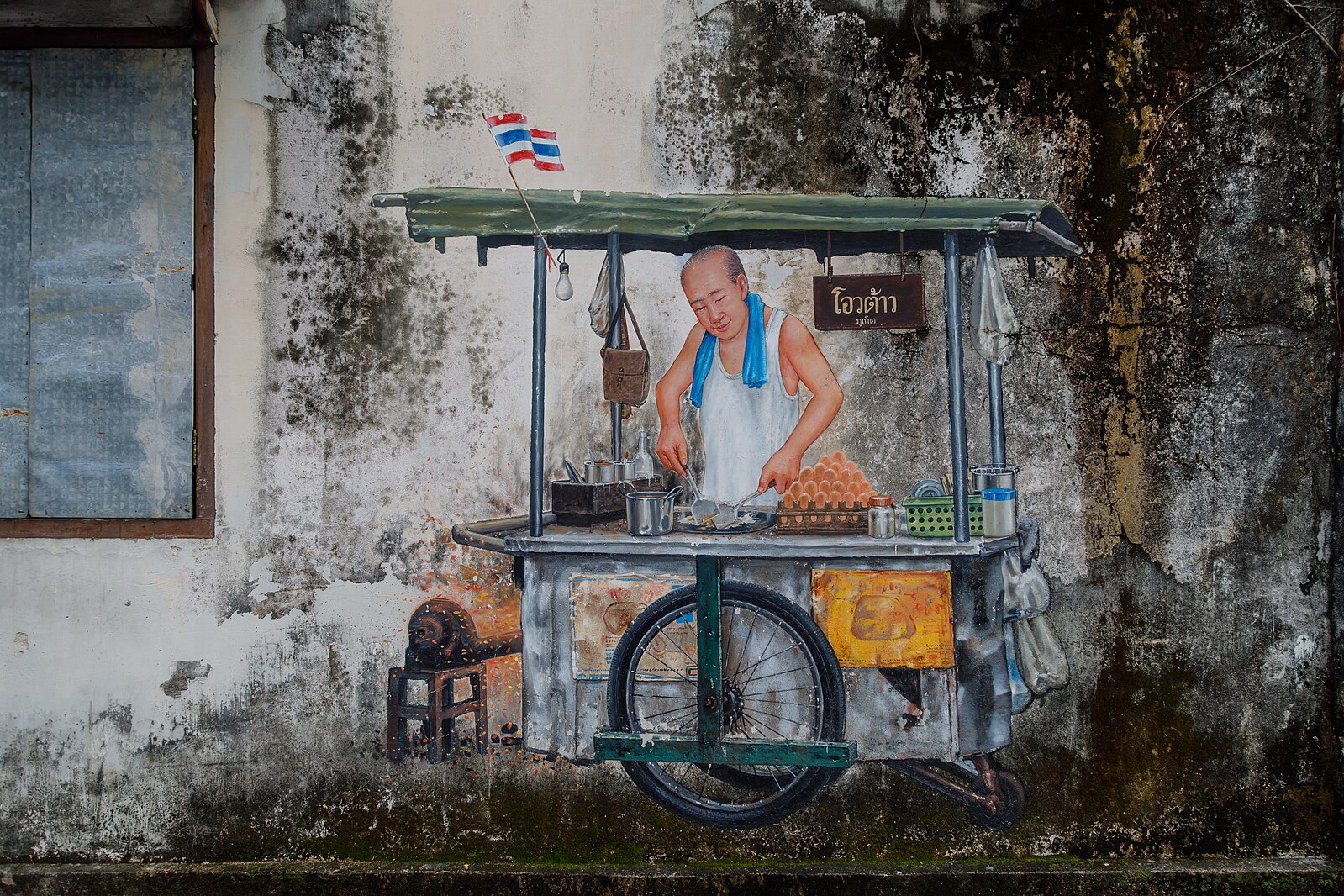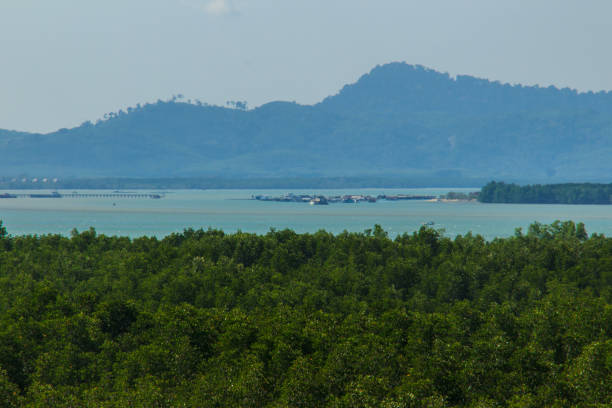Phuket, an island known for its stunning beaches and vibrant tourism, also serves as the home of one of Thailand’s most unique and captivating cultural events—the Phuket Vegetarian Festival. Held annually during the ninth lunar month of the Chinese calendar, this nine-day festival, sometimes referred to as the "Nine Emperor Gods Festival," is a deeply spiritual event. It has gained global recognition for its intense religious rituals, striking displays of self-mortification, and, of course, its adherence to vegetarianism.
This festival is not just about abstaining from meat but signifies a period of spiritual cleansing, personal sacrifices, and devotion to deities. As the festival unfolds, Phuket transforms into a sacred space where faith, purity, and community take center stage.
The Origins of the Phuket Vegetarian Festival
The Phuket Vegetarian Festival traces its roots to the early Chinese settlers who came to Phuket in the 19th century. Legend has it that in 1825, a Chinese opera troupe performing in Phuket was struck by a deadly plague. In a bid to rid themselves of illness, the troupe observed a strict vegetarian diet to honor the Nine Emperor Gods, a set of Taoist deities. Miraculously, the plague vanished. This prompted the local Chinese community to hold an annual festival to express gratitude and to continue this tradition of purification and spiritual renewal.
Over the years, the festival has evolved into a grand celebration, blending Chinese and Thai cultures. It remains an event of deep religious significance to the island’s sizable Thai-Chinese population, though it attracts participants and tourists from all over the world.
The Role of Purification
The Phuket Vegetarian Festival revolves around the theme of purification—of the body, mind, and spirit. Devotees believe that by abstaining from meat and various forms of indulgence, they can purify themselves and draw closer to the divine. In line with this belief, participants follow a strict vegetarian or vegan diet throughout the festival. But the idea of purification goes beyond just food.
Many devotees follow a set of strict rules during the festival to maintain their purity. These include:
- Wearing white: Symbolizing purity and cleanliness, white garments are worn by those participating in the festival rituals.
- Abstinence from sex and alcohol: Devotees believe that physical indulgence can cloud their spiritual connection, so they abstain from these activities.
- Avoiding impure thoughts and actions: Mental and emotional purification is equally important, so participants try to maintain a positive, focused, and calm demeanor.
- Refraining from killing: As the festival promotes respect for life, participants are also discouraged from harming animals or taking life during this period.
These acts of self-denial and discipline are believed to help devotees cleanse their souls and gain spiritual merit.
Rituals and Ceremonies
While the observance of vegetarianism is central to the festival, it is the elaborate rituals and ceremonies that have earned the Phuket Vegetarian Festival its widespread fame. These rituals are led by ma song—spirit mediums who are believed to be possessed by gods during the festival. Through them, the gods can interact with the physical world, offering blessings and protecting the community.

Here are some of the key ceremonies and rituals that take place during the Phuket Vegetarian Festival:
1. Raising of the Lantern Pole (Seng Ko Teng)
The festival begins with a ceremonial raising of the "Go Teng," a tall lantern pole, at various Chinese shrines around Phuket. This pole serves as an invitation for the Nine Emperor Gods to descend from the heavens and take part in the festival. The ritual is a solemn one, and once the pole is raised, the festival is considered to be officially underway.
2. Street Processions and Spirit Possession
Perhaps the most iconic and dramatic aspect of the Phuket Vegetarian Festival is the street processions, where spirit mediums known as ma song take center stage. These ma song are ordinary people who undergo intense spiritual preparation, including fasting and meditation, to act as vessels for divine spirits. Once possessed, they enter into a trance-like state, allowing them to perform feats of extreme endurance and self-mortification without feeling pain.
One of the most startling practices during these processions is the act of body piercing. The ma song pierce their cheeks, tongues, and other parts of their bodies with various objects, ranging from knives and skewers to more unusual items like bicycles and guns. These acts of self-mortification are believed to demonstrate the power of the gods and the devotion of the ma song, and it is said that they feel no pain while under divine protection.
In addition to body piercing, the processions also feature firewalking, climbing ladders made of sharp blades, and other daring acts that test the physical and mental limits of the participants. Spectators line the streets to watch the processions and to receive blessings from the ma song as they pass.
3. Firewalking Ceremonies
Another important ritual during the Phuket Vegetarian Festival is the firewalking ceremony, where devotees walk barefoot across beds of burning coals. This act of faith is believed to demonstrate the spiritual purity of the participants and their connection to the divine. Like the body piercing, firewalking is seen as a way to purify the body and soul, as well as to offer protection and blessings to the community.
4. Bladed Ladder Climbing
In addition to firewalking, some participants in the festival climb ladders with rungs made of sharp, bladed objects. This ritual, like many others in the festival, is meant to demonstrate the devotees’ faith and spiritual purity. Climbing the ladder unscathed is believed to symbolize the overcoming of obstacles in life and the triumph of the spirit over the material world.
5. Koi Han Procession
The Koi Han procession, held on the last day of the festival, is one of the most anticipated events. It represents the final farewell to the gods as they return to the heavens. The streets are filled with devotees and ma song, and the atmosphere is electric with the sound of firecrackers and the smell of burning incense. Participants carry statues of the Nine Emperor Gods through the streets and down to the sea, where they are symbolically sent back to the heavens.
This final procession is an explosion of sound, color, and emotion, as the community comes together to send off the gods with gratitude and reverence.
Dietary Restrictions and Food Culture
Throughout the festival, participants adhere to a strict vegetarian or vegan diet, abstaining not only from meat but also from pungent vegetables like garlic, onions, and chives, which are believed to excite the passions and disrupt the body’s balance. Many local restaurants and street vendors in Phuket offer special vegetarian dishes during the festival, often marked with yellow flags to indicate their participation.
The food served during the festival is not just a substitute for meat-based dishes but is often prepared in elaborate and delicious ways that highlight the creativity and culinary traditions of Thai-Chinese culture. Dishes like mock meats, stir-fried vegetables, tofu-based curries, and sticky rice are commonly enjoyed during the festival. These meals are not only a means of physical nourishment but also serve as a reminder of the spiritual purity that the festival seeks to cultivate.
Impact on Phuket’s Community and Tourism
The Phuket Vegetarian Festival has grown from a local religious celebration to an internationally recognized event that draws tens of thousands of visitors from around the world. For the local community, the festival is an essential part of their cultural identity, offering an opportunity for spiritual renewal, social unity, and connection with their ancestors.
For tourists, the festival provides a unique window into Phuket’s rich cultural heritage, blending ancient Chinese traditions with Thai spirituality. It’s a stark contrast to the island’s more familiar images of beaches and nightlife, offering visitors an immersive cultural experience like no other. While the extreme rituals may be shocking to some, they are a testament to the deep faith and devotion of the participants.
In recent years, however, there has been concern about the commercialization of the festival, with some locals fearing that the spiritual essence of the event could be overshadowed by its increasing popularity with tourists. Efforts are being made to preserve the festival’s authenticity, ensuring that it remains a sacred event for the local community while also welcoming respectful visitors.
The Phuket Vegetarian Festival is far more than just a celebration of vegetarianism. It is a profound expression of faith, purity, and the human capacity for spiritual transformation. Through its striking rituals, rich traditions, and deep sense of community, the festival invites participants and spectators alike to reflect on their own lives, their connection to the divine, and the importance of purity in body and spirit.
For those fortunate enough to witness it, the Phuket Vegetarian Festival is an unforgettable experience—an awe-inspiring journey into the heart of Phuket’s spiritual and cultural life.
Contact Us
For sales and villa information: Email: sales@pavaragroup.com
For legal-related enquiries, such as villa ownership, due diligence report:
Mr. Ittinant Suwanjutha, Partner, IAS Advisory Co.,Ltd.
Email: ittinant@ias-law.com Mobile: 0612387447

















